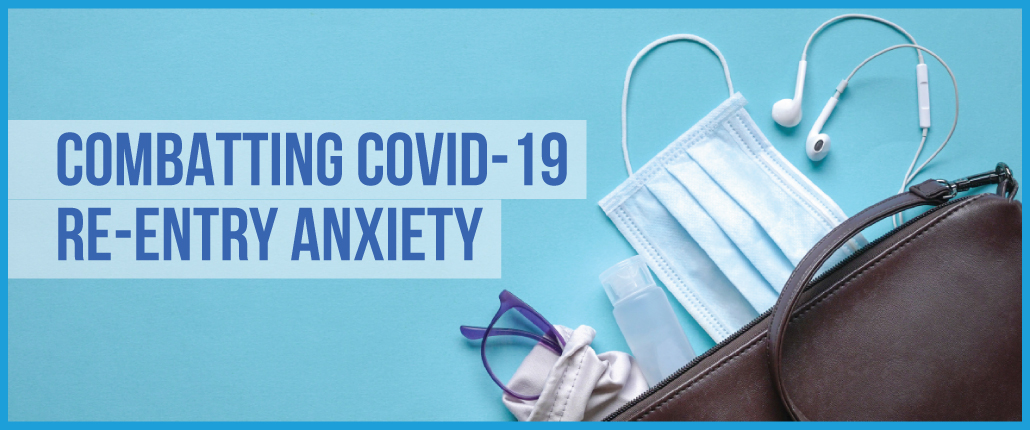
Combatting Covid-19
Re-Entry Anxiety
Life feels so different now. Last summer, many of us thought that life would soon be back to normal. Now, a year later and still dealing with a global pandemic, it can be hard to imagine life as it used to be. It is understandable that many neurodivergent young adults are resisting the transition back to former routines. Some psychologists are referring to this resistance as “Covid-19 Re-Entry Anxiety” and many of us are feeling this anxiousness as we slowly leave our homes and go back into the world.
If your young adult child is experiencing anxiety about re-entering this new life, here are a few strategies you can use to ease their way back into the world.
Start Now
When we are feeling anxious, the best time to deal with the situation is as soon as possible as the longer you wait, the more intense the anxiety. Make it a family project by enlisting all family members to offer support to each other.
Don’t wait for the anxiety to go away
Remind your child that feeling anxious is perfectly normal but that doesn’t mean that they are in danger. Encourage them to try affirming self talk such as, “I am safe” or “I am protected when I put on a mask and go outside ”
Focus on what you can control
Your young adult is likely feeling nervous due to the uncertainty of what life will be like now. Remind them that there are aspects of life that they do have within their control. For example, it is still best practice to social distance, to wear a mask, and frequently wash hands – all things that we all have within our control.
Small Steps
If your young adult did not leave the house very much during quarantine, the idea of going back into the world is understandably overwhelming. Encourage your child to take small steps such as going for neighborhood walks and building up to a hike
in an area a bit further away each day. Suggest a celebratory lunch at a favorite restaurant or a stroll through a farmer’s market. Allow your young adult child to slowly work up to more and more time out of the house.
Make a list of fun things to do
As a way of not dwelling on the past, encourage your young adult child to create a list of fun new activities such as learning how to play a new board game, or family favorites like watching a movie together. This can create feelings of hope and optimism. Ask family members to think big picture and ask, “what will make me happy?” Let the answer be a motivating factor to overcoming the small picture of our lives spent indoors last year.
Venture out with a partner
Find a friend, mentor, or Life Coach, to help your child venture out. It is okay to need or want support during the re-entry process. It always feels better and safer to have someone by your side when you are dealing with anxiety producing scenarios.
And remember, it takes strength to ask for help
For some neurodivergent young adults, re-entry will be something they take in stride. But for others, it may be a hurdle to overcome. It’s okay to ask for help from mental health professionals and, in fact, it shows strength.
Jeri Rochman, JD, MS
Jeri Rochman, JD, MS, is the Advance LA Director of Community Outreach, a Life Skills Coach, National Board Certified Counselor and Certified Parent Educator. Interested in learning more about Advance LA’s services?